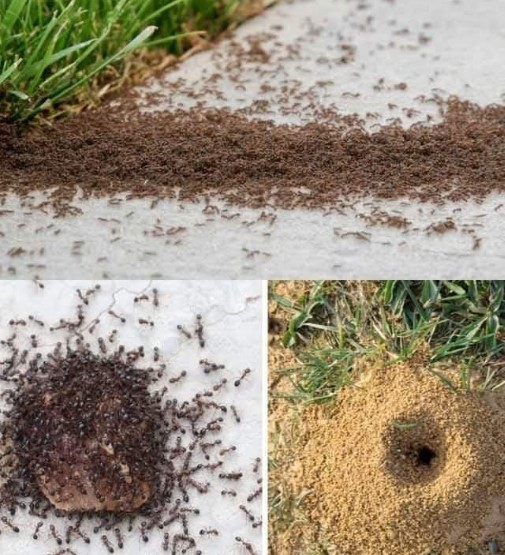Introduction
Ants are an essential part of the ecosystem, playing a role in aerating soil and recycling organic matter. However, when they become overpopulated in your garden, they can protect pests like aphids, damage plant roots, or disrupt your gardening efforts. This guide provides effective and eco-friendly methods to manage ants without harming the environment.
Why Ants Invade Your Garden
Ants are usually attracted to gardens for food, water, and shelter. Some common reasons include:
- Presence of Aphids: Ants farm aphids for their sugary secretions, also known as honeydew.
- Uncovered Food or Waste: Leftover organic material can attract ants.
- Dry Soil: Ants prefer loose, dry soil for nesting.
Eco-Friendly Solutions to Get Rid of Ants
1. Use Diatomaceous Earth
- How It Works: Diatomaceous earth is a natural powder made from fossilized algae. It dehydrates ants by absorbing their oils.
- How to Apply: Sprinkle the powder around ant mounds, along trails, or at the base of plants. Reapply after rain.
- Safety Note: Use food-grade diatomaceous earth, which is safe for pets and humans.
2. Create a Soap and Water Spray
- How It Works: Soap breaks down the protective coating on ants, dehydrating and killing them.
- How to Apply: Mix 1-2 tablespoons of dish soap with 1 quart of water. Spray directly on ants and their trails.
3. Use Vinegar
- How It Works: Ants dislike the strong smell of vinegar, which disrupts their trails and repels them.
- How to Apply: Mix equal parts vinegar and water. Spray this solution around ant mounds, garden edges, or on trails.
4. Introduce Natural Predators
- How It Works: Encouraging natural ant predators like birds, frogs, or toads can reduce ant populations.
- How to Apply: Add bird feeders, water sources, or create habitats that attract these predators.
5. Sprinkle Cinnamon or Coffee Grounds
- How It Works: Strong-smelling substances like cinnamon and coffee grounds repel ants.
- How to Apply: Sprinkle around ant trails, nests, or areas where ants are common.
6. Use Boiling Water (Carefully)
- How It Works: Boiling water kills ants and destroys their nests.
- How to Apply: Pour boiling water directly into ant mounds. Be cautious not to damage nearby plants.
7. Plant Ant-Repelling Herbs
- How It Works: Herbs like mint, lavender, and thyme emit scents that deter ants.
- How to Apply: Plant these herbs around the garden or near ant-prone areas.
Preventing Ant Infestations
- Control Aphids
- Use natural methods like neem oil or ladybugs to manage aphid populations, cutting off ants’ food supply.
- Water Your Garden Regularly
- Ants prefer dry, loose soil. Keeping the soil moist discourages them from nesting.
- Clean Up Organic Matter
- Remove fallen fruit, leaves, and other debris that might attract ants.
- Seal Cracks and Entry Points
- If ants are entering through pathways, seal cracks in garden beds or pavement.
When to Call a Professional
If eco-friendly methods don’t work or the infestation is severe, consult a pest control professional who specializes in environmentally safe treatments.
Conclusion
Managing ants in your garden doesn’t require harmful chemicals. With these effective and eco-friendly methods, you can control ant populations while preserving the health of your garden and the environment. Remember, the goal isn’t to eliminate ants entirely but to strike a balance that ensures your plants thrive!

